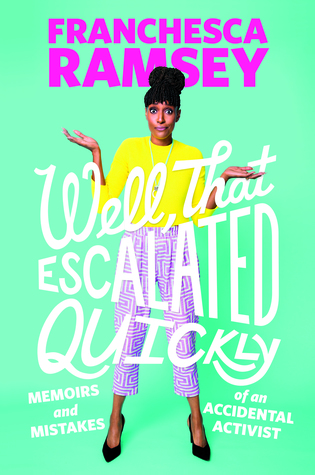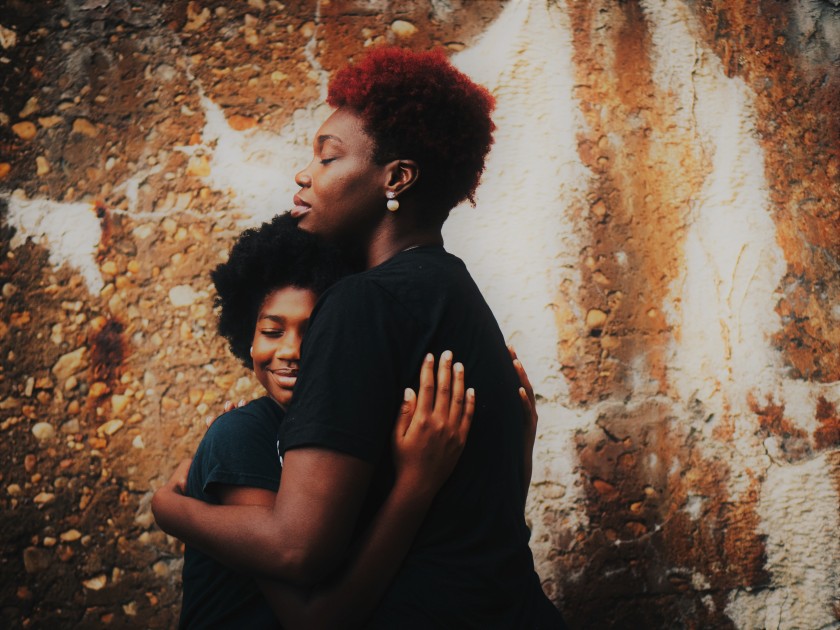It was the cute bowtie that caught my attention. I’d seen Danielle post several times on a Black woman’s website we both visit. I enjoyed her thoughtful commentary. I always wanted to ask her about her bowties. One day, someone started a thread encouraging people to promote their side gigs. Danielle shared briefly about her bowtie venture. It was an opportunity to learn more!
Hello! Thank you for the interview. Tell us about yourself.
Firstly, I was born in Frankfurt, Germany via military and experienced various countries, languages, and peoples…thus my engagement with learning about the world outside of the United States began. Those formative years shaped me into the individual I am today, because when you have the birth situation or opportunity to experience culture outside of the U.S., you’re able to intellectually flex your brain muscles a tad more to engage with a lot of really heavy topics. We eventually moved back to the U.S., to a military base, (surprise-surprise) and that’s where I’ve been intermittently since.
Second, I’ve always had natural hair, which I have to brag about because Black Women have been given so much scorn and belittling because of the way our hair naturally grows out of our scalp. Our hair is the most versatile and beautiful work of art: mohawks, high tops, braids, locs, curls, afros, bantu knots, etc. The sky is really the limit with our hair and it never fails to leave me speechless. Praise be and blessings to my Mother who saved my Sister and I from a lot of self hate.
Third, I identify as Ace-greysexual. This was a process of self discovery that was as confusing as it was educational because I knew about the main umbrella/lettering but the periphery letters so often get left off of the promotional materials, you know? I always felt like I was standing on the outside looking in when the topic of romantic and sexual relationships came up. I had no interest and the synapses that were supposed to ignite, didn’t even fizzle. I’ve learned that I’m not alone, an outlier, and more than anything broken.
Fourth, when I’m not working on content, you can catch me at the gym or working out at home. I got into powerlifting and various muscle training exercises while I was at University. It’s super cathartic, an incredible way to decompress, and great for my health. When I personally channel my own vanity, it’s for mental health and to combat some body dysmorphia issues that used to pop up for me.
I am excited about your upcoming bowtie business. I know you love fashion, but why specifically bowties? Any challenges you’ve faced as a Black woman entrepreneur? When will products be available for purchase?
Bowties have always been fascinating to me; I’ve always been enamored by their shapes and how they rest on/around the neck. Plus, I puzzled when I was little, where/how do you tie these? I bought my first bow tie when I was in Undergraduate school and am reaching closer and closer to 100. They are so much more exquisite in form, function, and variety to me than neckties. Alongside bowties, I have a sizable hat collection and collect more when my funds permit. The motivating factor in starting this business venture was minimal job opportunities after I graduated—and not living in a state where a fashion store or company could easily pick me up—with my particular niche/expertise.
Also, my Grandmother who passed away two years ago was a sewer, knitter, crocheter, needle-pointer, and anything else you can imagine with fabric. She made various clothes for her children, drapes and curtains, quilts, pillowcases, and so much more. My main regret is missing out on crucial learning time about her and with her; Dementia gradually sapped her mind and her voice. But, her legacy will continue in a way through her grandchild that wants to take up her mantle and sewing machine. I’ve faced no challenges thus far with my business (praying that the waters don’t become rough). My market has so much untapped potential that I personally feel that people will be knocking my website door down to make a purchase.
There’s so many businesses that by proxy of having a Black Woman (or Black queer woman) attached do incredibly well. My Grandmother has so much fabric, sewing machines, needles, thread, etc. that purchasing essentials may be nil to very inexpensive. At most, the domain for my website may cost a bit through Squarespace, but once I launch later this year, everyone should be on the lookout for something truly special!
You shared you’re an avid reader. I love to read too! My latest obsession is N.K. Jemisin (science fiction/fantasy). What books do you enjoy reading?
Thanks for the recommendation! I really need to get into more science fiction books because I love the science fiction genre, especially in film, plus I know it’s really grown and has tons of Black Women and Black people as leads. I read a lot of social justice, history, feminist, environmental, sci-fi, horror, and video game texts. I’m a logophile nerd that loved reading the dictionary and competing in spelling bee competitions, so of course I read everything!
There’s a book that was released recently called, Let’s Talk About Love by a young Black female author named Claire Kann. You’ve got to check out the cover too, you will be overwhelmed by its beauty. The story follows a young Black Woman that’s trying to navigate her relationships as an Asexual person, and its representation like that, which was severely lacking when I was a child/young person trying to navigate the world as a non-overtly sexual Black person. The media we ingest so often over-sexualizes Black people so that when you don’t fall into that spectrum, you feel like an otherized other inside of another otherness.
I also just downloaded the comic Bingo Love, it’s about two Black girls that fall in love in the 1960s, society forces them to change/act heteronormatively, get married yada, yada, yada…however their story doesn’t end there…when they’re much older in their sixties they reconnect in a Bingo Hall and rekindle the same love that was snatched away so many years earlier. The story and then the artwork had me hooked immediately, Black Women loving each other outside of a cis-hetero framework, sign me all the way up!
Continue reading “The Future is…Danielle Heard”












